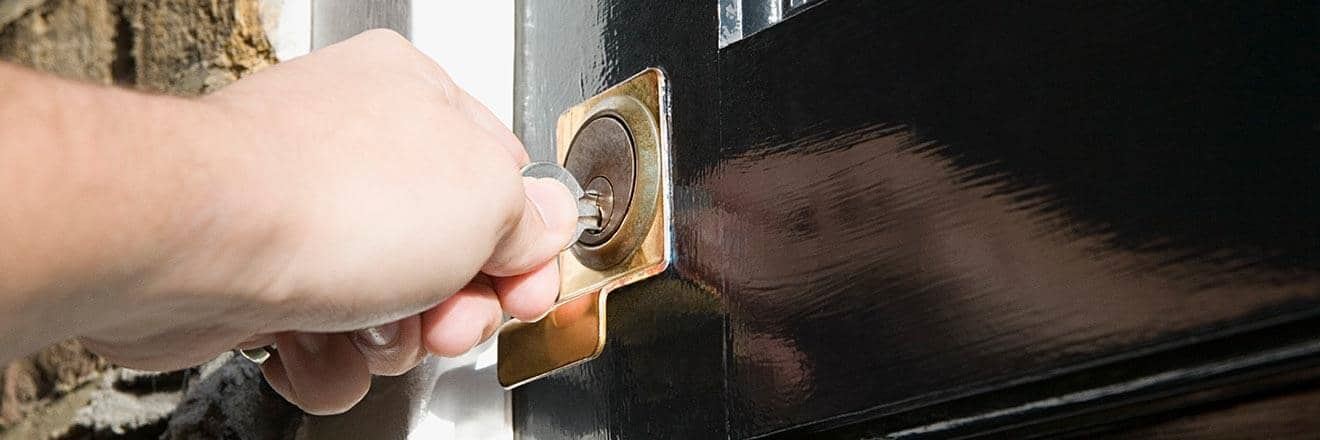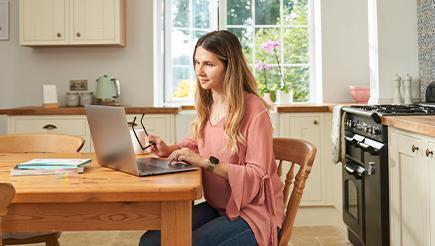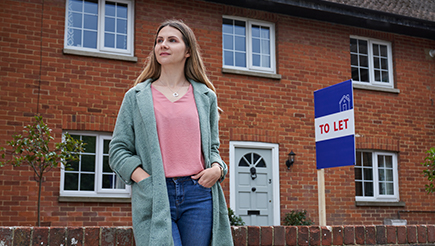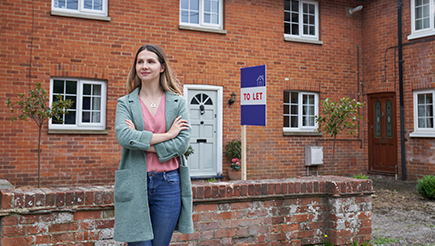Once you have tenants living in your property, one of the easiest ways to make sure they're following the rules set out in your tenancy agreement is to schedule regular inspections.
However, you can't just pop in whenever you feel like it and there's more to inspections than just having a glance around to make sure the space is tidy.
Whether it’s to carry out routine inspections or to perform repair work, read our guide to landlord access rights to help you stay within the law and maintain a good relationship with your tenants.
Why do I need to carry out property inspections?
The main purpose of an inspection is to evaluate the overall condition of the interior and exterior of your rental property. While it’s important to make regular inspections, it’s just as important not to make too many (unless there’s a genuine need for repairs that need attention) as unnecessary visits could strain the relationship with your tenants.
The Landlord and Tenant Act 1985 gives landlords the right to enter the premises to view the “condition and state of repair”.
What are my rights of access as a landlord?
By following the rules set out in the Housing Act 1988, you can stay on the right side of the law and make sure your property is protected. Under this legislation, you need to give your tenants 24 hours' notice before an inspection – otherwise they have the right to refuse you entry.
These visits have to be scheduled at a reasonable time of day, meaning the tenant should be able to attend the inspection if they want to, and have time for a tidy up before you arrive. So, while 3pm on a Tuesday might sound good to you, it might be considered unreasonable if your tenant works standard office hours.
Remember, even if you have a spare key, you should never let yourself into the property if your tenant is at home for the inspection. Always knock or ring the bell and wait for them to let you in.
However, if you’re a landlord who provides services specified in the tenancy agreement, such as room cleaning, then you have the right to access your property without notice to carry out these tasks.
Can landlords enter a rental property in an emergency?
Hopefully an emergency never arises, but there are some situations where you’re entitled to enter your rental properties without the consent of your tenants.
- If you suspect there’s violent criminal activity happening inside your property.
- If there’s a fire in the property.
- If you can smell gas.
- If there has been structural damage to the property that needs urgent attention.
What to look for during a property inspection
During the inspection you're looking for signs that your tenants have been breaching their tenancy agreement, as well as checking to see if anything needs to be repaired or replaced. It's also a good time to have a chat with your tenants to make sure they're happy, to discuss any potential issues and how you can work to solve them.
Legal checks
As a landlord, it’s your duty and to ensure your property is legally compliant and a safe place for your tenants to live. Essential checks include:
- Testing smoke and carbon monoxide alarms to ensure they’re fit for purpose.
- Ensuring all heating, water and electricity supplies are working properly
- That all fire exit routes are clear of furniture and easily accessible.
Overall condition
It’s a good idea to check for signs of wear and tear. If you spot potential problems early, you'll be able to get repairs done before the grow bigger and become potentially more expensive to rectify. As such, keep an eye out for the following when carrying out inspections of your rental property:
- Check that handrails are tight and not loose
- Make sure furniture isn't torn or damaged and replace if necessary
- Check white goods and all other fittings provided are in good working condition.
- Check the floors and walls for signs of damage, mould or dampness
- Check that doors and windows are locking and opening properly
Health checks
In order to maintain a harmonious professional landlord-tenant relationship, you want to make sure the home is comfortable for your tenants and won't pose any hazards to their health. It’s a good idea to look out for:
- Blocked drains
- Signs of mould and mildew
- Leaking plumbing
- Signs of vermin such as mice and cockroaches
Breaches to the tenancy agreement
You'll need to put your detective hat on for this one, as your tenants will probably try to hide from you if they're doing anything they shouldn't. For example, pay attention to tell-tale smells to see if they've been smoking or keeping pets in your property.
How often should I inspect my rental property?
You don't want to be constantly popping in on your tenants, or surprising them with 24-hours notice. When you start the tenancy, agree on an inspection schedule – quarterly (every three months) is a good amount of time between checks.
Keep note of your agreed inspection dates in your Ultimate Landlord Planner to help you keep on top of your legal responsibilities, such as when to renew certificates and licences.
Can my tenant refuse me access to my property?
Tenants are well within their rights to refuse landlords access to your property. In the majority of cases, it’s likely that the dates and times you’ve suggested are inconvenient for them and will suggest an alternative time to rearrange.
A tenant is within their rights to change the locks of your property – especially if they feel you have entered their home unlawfully. That’s why it’s a good idea to try to maintain a positive relationship with your tenants as much as you can and be explicit about arranging property inspection.
However, depending on how serious the situation escalates, you may have to apply for a court order to be able to enter, or serve a notice of eviction. Remember, communication and respect is key to a healthy (and calm) relationship with your tenants.
From carrying out regular property inspections to keeping your tenants happy, you have a lot of responsibilities – and plates to spin – in your life as a landlord. If you’re finding it tricky to keep up to speed with all the rules and regulations you need to adhere to, or just need a little refresher, read our complete guide to being a landlord and how to plan for the unexpected to find out everything you need to know.






